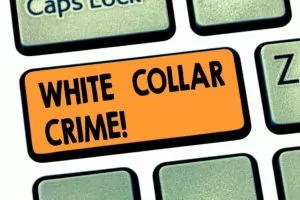 One of the most difficult tasks for a white collar criminal defense attorney is to control his client during what is inevitably a long-term government investigation. Developments in a recent case, U.S. v. Kinnucan, may provide defense counsel with an excellent primer on what their client should not do. On January 15, 2013, the 55-year-old former Broadband Research chief, John Kinnucan, was sentenced to 51 months in prison by U.S. District Judge Deborah Batts for conspiracy and securities fraud and required to forfeit $164,000. This saga of Kinnucan provides concrete evidence supporting all of the things we tell our client to do, or not to do, and the consequences of not following our advice.
One of the most difficult tasks for a white collar criminal defense attorney is to control his client during what is inevitably a long-term government investigation. Developments in a recent case, U.S. v. Kinnucan, may provide defense counsel with an excellent primer on what their client should not do. On January 15, 2013, the 55-year-old former Broadband Research chief, John Kinnucan, was sentenced to 51 months in prison by U.S. District Judge Deborah Batts for conspiracy and securities fraud and required to forfeit $164,000. This saga of Kinnucan provides concrete evidence supporting all of the things we tell our client to do, or not to do, and the consequences of not following our advice.
Kinnucan was one of more than 40 defendants sentenced in the federal government’s Operation Perfect Hedge insider trading investigation. The investigation by the Southern District of New York is part of President Obama’s Financial Fraud Enforcement Task Force.
Long before he was indicted, Kinnucan received an ambush visit by FBI agents seeking to enlist his cooperation in their ongoing investigation. From this point forward, Kinnucan was a textbook example of everything a defendant should not do. He immediately went public and announced to all of his clients via email that “Today, two fresh-faced eager beavers from the FBI showed up unannounced (obviously) on my doorstep thoroughly convinced that my clients have been trading on copious inside information, . . . . We obviously beg to differ, so have therefore declined the young gentlemen’s gracious offer to wear a wire and therefore ensnare you in their devious web.”
On November 23, 2010, Kinnucan was interviewed by CNBC’s David Faber. During that interview he described his confrontation with the FBI as “a couple of suits” who jumped out of their car and approached him on his front porch while he was enjoying a glass of wine. In addition to his emails and television interviews he also sent emails to lawyers, congressional investigators and journalists that were very critical of the federal authorities investigating him.
Kinnucan admitted to at least 25 antagonistic voicemails left with prosecutors and cooperating witnesses between 2011 and 2012. In one of those he wondered, “Where’s Hitler when we need him?” He basically challenged federal prosecutors to arrest him. They were happy to accommodate, and he was arrested at his Portland, Oregon, home on February 16, 2012.
His behavior came home to roost when he attempted to obtain bond for his nonviolent offenses. White collar criminal defendants typically are released on a recognizance bond, meaning no cash or property is posted. Kinnucan learned that federal judges are not particularly impressed with individuals who threaten and harass prosecutors or witnesses. His bond was set at $5 million, with various conditions that he could not meet. This resulted in him being the guest of the U.S. Marshals on a trip from Portland, Oregon, to the Metropolitan Correctional Center in Brooklyn, where he resided until he was recently sentenced. Anyone with experience in dealing with the Marshals and their methods of transporting prisoners from one location to another is familiar with the fact that those trips are made from local jail to local jail, often in a weeks-long circuitous route, at the convenience of U.S. Marshals. Mr. Kinnucan arrived in the urban correctional center in New York which like all urban correctional centers is claustrophobic and not particularly prisoner friendly.
A number of individuals who were indicted in the large-scale investigation received probation or significantly lesser sentences than Kinnucan. The sentence handed down by Judge Batts for Kinnucan was at the top end of the guidelines. Defense attorneys across the country will tell you that it is rare for a judge in a large urban setting to impose a sentence at the top end of the guidelines.
I intend to paste together all the articles about Kinnucan and make a notebook for my next “type A” corporate executive who is placed under the magnifying glass of a federal prosecutor. When that client suggests that we do a Freedom of Information Act request on all people involved in this investigation, I will advise him to keep his mouth shut, post no comments, make no Tweets, and no comment to the press or anyone else about the investigation. And then I will ask him to carefully consider the strategy of Mr. Kinnucan and the results he achieved.